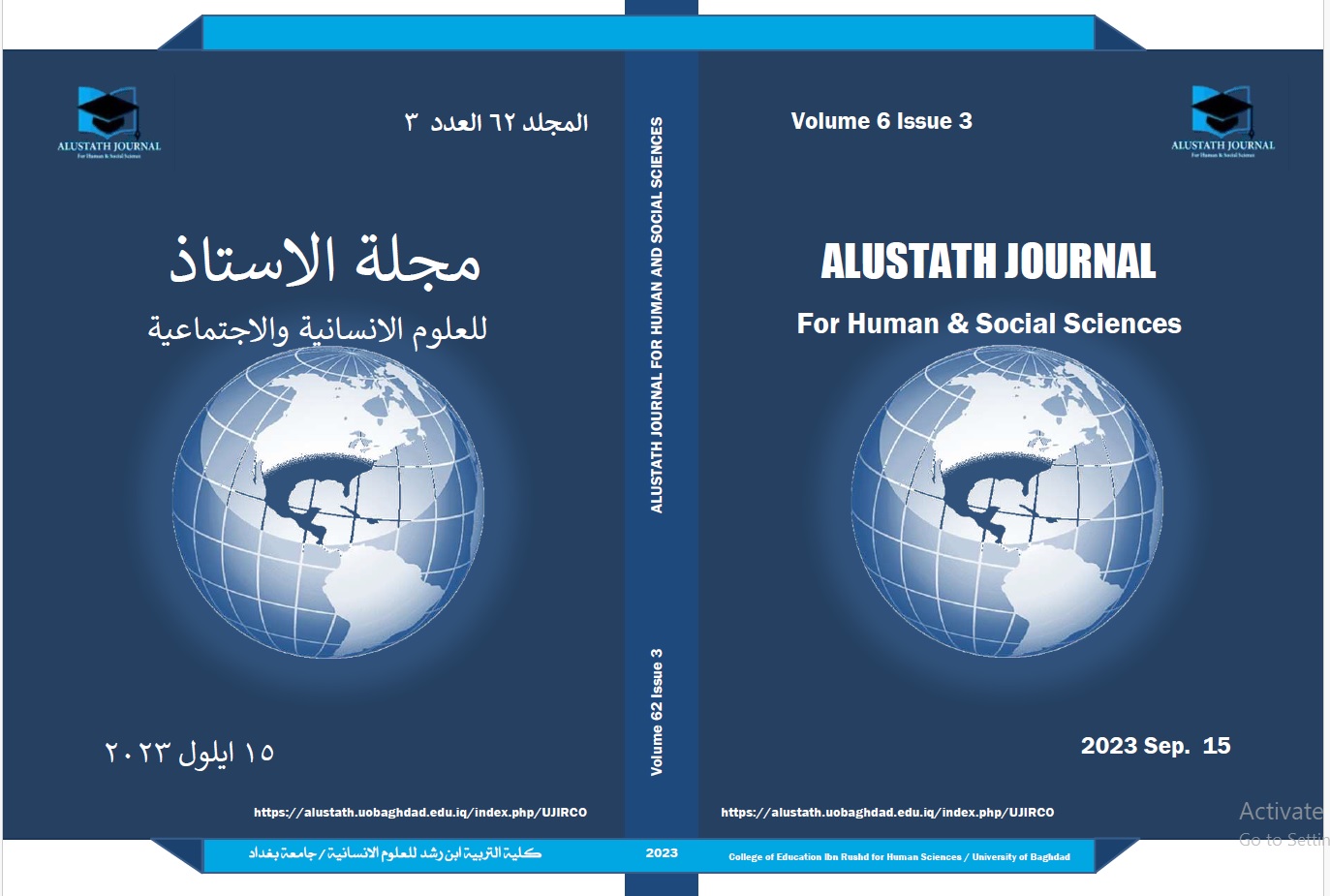A Study of the Process of Translating the Arabic Feminist Novel in Iran
DOI:
https://doi.org/10.36473/ujhss.v62i3.2216Keywords:
Translating the Arabic novel, The Arab feminist novel, translator's authority, publisher authority, the readerAbstract
Given the importance of translation and its issuance in all societies, it seems to be receiving great attention. The increasing tendency to translate the literature of Arab women in Iran is an important point that drew our attention to study the factors that affected it. Follow-up of the process of translating the Arab feminist novel in Iran shows the support and exercise of its ideological, political, cultural, educational and intellectual authority. These were the main reasons for the move of the main actors in translation. Translators, publishers, and audiences have used their ability to bring Arab women's novels to the Iranian book market. Therefore, the main reason for the promotion and development of the translation process is the simultaneous presence of its direct agents together. Trained translators, often in response to the demand of the community and the reader, contributed to a radical transformation of the translation process in this field. This happened with the support of the publishers, support that is described in translation studies as "detachable". It seems that the effectiveness and achievement of the desired result of this process requires the passage of time in addition to the initial and continuous work like any other cultural process.
Downloads
References
Al Harthy, Jokha (2018). Celestial Women. Translated by Naghmeh Rahmani. Parmis. Tehran.
Al Harthy, Jokha (2018). Daughters of the Moon. Translated by Ali Akbar Abdul Rashidi. Goya. Tehran.
Al Harthy, Jokha (2019). Celestial bodies. Translated by Hamid Reza Mohajerani. Rozaneh. Tehran.
Al Harthy, Jokha (2019). Daughters of the Moon. Translated by Manizhe zhyan. Azarmidikht. Ghazvin.
Al Harthy, Jokha (2019). Daughters of the Moon. Translated by Mansoura Ahmadi Jafari. Manya Honar. Kerman.
Al Harthy, Jokha (2019). Ladies of the Moon. Translated by Asghar Ali Karmi, Ijaz. Tehran.
Al Harthy, Jokha (2019). Moonlight Girls. Translated by Narges Bigdeli. Afraz. Tehran.
Al Harthy, Jokha (2019). Moonlight ladies. Translated by Hasan Latifi. gameno. Tehran.
Al Harthy, Jokha (2019). Moonlight ladies. Translated by Moein Salemi. Negar Taban. Tehran.
Al Harthy, Jokha (2019). Moon ladies. Translated by Mohammad Hezbaeizadeh. Kuleposhti. Tehran.
Al-Samman, Ghada (2015). Beirut 75. Translated by Soumayeh Agha Jani. Mahi. Tehran.
Al-Samman, Ghada (2015). Translation, review and criticism of "Beirut 75". Translated by Zahra Masoumi. Sava. Tehran.
Al-Samman, Ghada (2016). Beirut 75. Translated by Mahboobeh Afshari. Nimazh. Tehran.
Asghari, Jawad (2021). Boutiqai translation. Edition 1. University of Tehran Publishing Institution. Tehran.
Asghari, Jawad (2021). Boutiqai translation. University of Tehran Publishing Corporation. Tehran.
Askari, Yasser (2021). Translation of Arabic books in the face of Persian speaking communities. Mehr News Agency. (https://2u.pw/KTztgh ).
Basnett, Susa & Harish Trivedi & Maria Tima Cazco & Tejasoni Niranjana (2017). Translation and post-colonial perspectives. Translated by Ahmed Shirkhani. 1st edition. Qatreh publication.
Basnit, Susan (2013). Culture and translation. Translated by Nasrullah Moradiani. Rokhdadno Tehran.
Benny, Hoare & Marie Ansel (2013). Cultural turn of the 1980's. Translated by Mazdak Boluri. Ghatreh Publications. Tehran.
Ghulam Hossein Zadeh, Ghulam Hossein & Nurullah Taheri & Sara Hosseini (2012). The course of women's literature in Iran from the beginning of the constitution to the end of the eighties. The Sixth National Conference on Literary Research at Shahid Beheshti University.
Hatem, Bassel and Jeremy Monday (2018). An advanced reference for translation. Translated by Maryam Jaber. Samt. Tehran.
Jeremy, Monday (2009). An introduction to translation studies. translated by Elaheh Sotoudeh Nama and Farida Haq Been. Elm Publications. Tehran.
Mutahmen, Mehdi & Iran Lak (2012). The role of translation in comparative literature and contemporary fiction writing. The Role of Translation in Literature No. 9. Scientific Research Journal for Translation in Arabic Language and Literature.
Soroush Zand, Elaheh (2010). The reasons for the appearance of the narrator in Arabic literature. Diwan Al-Arab. (https://2u.pw/IZmNGo ).
Suleiman, Musa (1950). retribution among the Arabs. Dae Al-Kitab. Beirut.
Tahmasbi, Adhim (2020). London. Al-Jadid Magazine. (http://old.bookcity.org/detail/20713/root/speak).
Telephone interviews with Azadeh Pour Sadami & Hossein Abbasi & Hossein Tarfi Aliwi & Hasan Latifi & Abd Al-Ali Delimi, Fatemeh Muhammad Qasimi & Karim Asadi Asl & Muhammad Hezbaei Zadeh, & Maani Shaabani.












